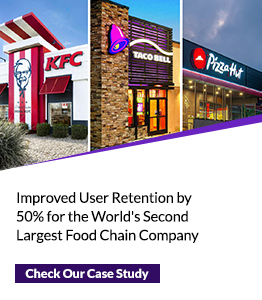How Functional Testing Increases Your E-commerce Conversions?

There is always room for improvement, regardless of how high, average, or poor a company’s conversion rates are. Without the correct methods, companies run the danger of making adjustments that negatively impact the conversion rate.
Businesses won’t even be able to identify the change that decreased their conversion rate if they don’t make changes in a controlled manner. Wouldn’t it have been great if there were a testing approach for improving conversion rates? Thankfully, there is- Functional testing!
Functional Testing for E-commerce Website
Each e-commerce website is distinct and created to support a variety of functions. To prevent problems after launch, it is essential to evaluate these websites’ core functions independently.
The parameters that an e-commerce website functional testing evaluates includes:
- User Experience (Home Page, Product Page, Shopping cart)
- Basic website functionality (such as creating a login, product search, filters, payment gateways, deals, promo codes, order confirmation page, order tracking & more)
- APIs, client-server software, customer relationship management, payment processing, and inventory management.
All of these essential aspects must be functional & that is the role of functional testing. Sanity testing, integration testing, smoke testing, regression testing, and beta/usability testing are its five subtypes. Based on the need, businesses can utilize any functional testing.
How Does Functional Testing Help Boost eCommerce Sales?
The users will feel at ease when an e-commerce website radiates excellence. They can be impressed by high-quality images without waiting long for the page to load. Businesses will see an increase in conversions will boost their website profitability. But how does it happen?
Here are some ways functional testing ensures e-commerce customers get a smooth user experience.
1. Availability of the online store
It is a very typical problem, especially during the peak seasons. If there is a problem with the server, hosting, or provider end might occur. It can also be because of the heavy workload during the busy holiday and sales seasons. Users either see the error page or receive the message “site is offline,” which results in negative interactions.
But with functional testing, a company can ensure that its site is functional. It imitates consumer use of the system to find issues like missing functionality, UI flaws, or integration problems that might impair the user experience.
2. Ability to Find Products
Many customers visit online retailers to look for particular brands or products. When a specific product is not available, they may feel disappointed. Often they remove items from the cart that already include other products if they can’t locate a specific one.
Functional test automation assures accessibility to customers in finding their choice of products, maximizing e-commerce conversions of online retailers.
3. Avoiding Shopping Cart Issues
Imagine discovering the item but being unable to order it. That doesn’t seem any worse than not being able to locate the item, does it? These problems, however, arise if a website has not been properly tested.
Customers may even stop using the website & they will switch to another marketplace that offers the same goods. The user’s inability to add the coupon code falls under this category’s other problem.
Failure to test this area of the website can result in serious security problems while processing transactions. Functional test automation is a helpful tool for finding such potential flaws and minimizing them once found.
Additionally, it offers more coverage for quicker issue discovery and guarantees that the e-commerce application is tested at all times without cutting corners.
4. Ensuring a competent UX
Online retailers can turn visitors into buyers by using the design, the text, the movement, and the setting. However, businesses will notice a decline in conversions if one of the website’s numerous components is broken.
For instance, consumers will leave a website if their experience when browsing or at the checkout is subpar. Making the testing procedure error-free will help businesses lower this risk.
Functional test automation can be done more quickly and often as needed as the application gets more complicated. It implies that updates to the application can happen more quickly. A regularly updated application will have a better reputation in the market, which will translate into more revenue and better conversions.
Key Takeaway
To summarize, every e-commerce website must undergo functional testing because issues like poor usability, sluggish response times, and downtime can quickly ruin any online business.
The development of e-commerce applications must include e-commerce testing. It benefits e-commerce websites in many beneficial ways, including improved user experience, user data security, mobile responsiveness, security, rapid load times & many more.
So, to reduce errors and enhance performance, it is necessary to carry out thorough e-commerce functional automation testing. The better the shape of the e-commerce app, the more conversions a business will have.
There are several testing services available on the market, so pick the one that best meets your requirements. Nevertheless, ImpactQA will be the best option for you if you don’t have the right team and are seeking a functional testing service partner who can offer the best e-commerce testing services. Get in touch with Impact QA today!







